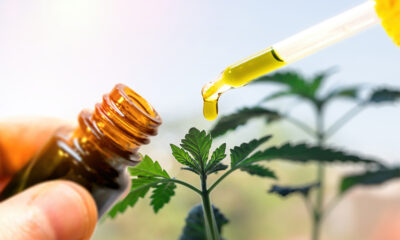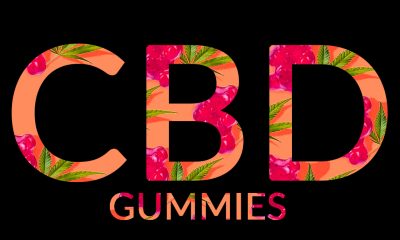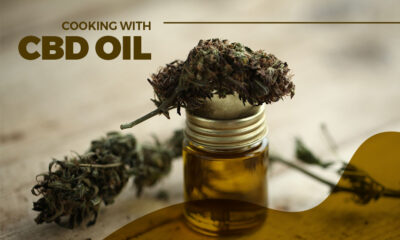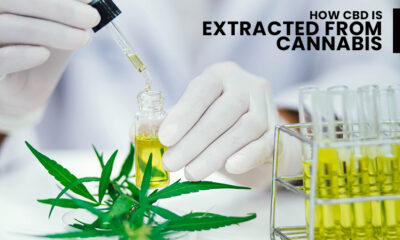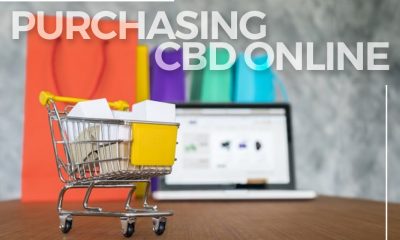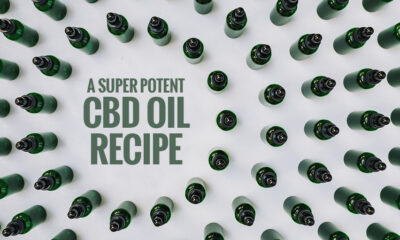CBD Oil
How CBD and Intermittent Fasting Work Together For Better Health

CBD oil is a wonder supplement that many have been talking about for the past few years. It has some great health benefits and people love it for its medicinal properties. CBD is an abbreviation for cannabidiol, a non-psychoactive component of cannabis and hemp plants. It is a cannabis compound that has been closely studied for its therapeutic properties. CBD oil also plays a role in intermittent fasting, which has been shown to increase metabolic rate and help people lose weight faster than other “diets”. People who want to try intermittent fasting should first consult with their doctor or nutritionist before starting since there are certain risks associated with this type of pattern of eating. Now let’s take a look at why CBD Oil and intermittent fasting is helpful when looking to achieve better health.
Benefits of CBD Oil
CBD oil is a natural treatment for many common ailments. CBD can help reduce pain, swelling, and stiffness in joints and muscles. So if you’re experiencing any of these symptoms or are just looking to maintain good health, read on! The best part about CBD oil is that it has no side effects or addictive properties like other pharmaceutical drugs which makes it safe for nearly anyone to use. It also provides benefits such as improved sleep quality, reduced anxiety, and depression levels. One of the most intriguing aspects of CBD is how it affects our body’s endocannabinoid system, which can help regulate things like mood, appetite, and pain sensation. CBD is an effective treatment for pain relief from chronic conditions such as arthritis, epilepsy, cancer-related side effects, anxiety disorders (such as PTSD), depression, and more!
Benefits of Intermittent Fasting
Intermittent fasting is a type of diet that helps reduce inflammation, which can cause inflammation-related diseases. You cycle between periods of fasting (usually 16 hours) and feeding (eating whatever you want). It’s also beneficial because it can decrease body weight and lower cholesterol levels. Intermittent Fasting helps with weight loss by decreasing hunger pangs and boosting metabolism. This is done by skipping breakfast and eating a healthy lunch or dinner instead. It also helps with blood sugar levels, which can help decrease the risk of diabetes.
The best part about intermittent fasting is that it doesn’t require much effort from you! You don’t need to think about what to eat or when to eat, just stop eating at your designated time each day (usually around 8 pm) and start again after 16 hours have passed. This will help reduce glucose in the bloodstream by lowering insulin production, giving your immune system the chance to rest so it can eliminate toxins and fight off infection more effectively; plus, if you’re trying to lose weight, this will also make exercise easier as your glycogen stores will be depleted and your body will naturally burn fat instead for energy.
It was shown in a 2017 study to significantly reduce one’s risk for heart disease as well as other illnesses; the results were so impressive that experts are recommending everyone consider intermittent fasting! Combining these two interventions will help people lose weight while also reducing their risk for illness.
How CBD and IF they work together for better health
If you’re looking for some ways to get your health back on track, the answer may be as simple as CBD and IF.
A study found that CBD oil “significantly improves insulin resistance in patients with type 2 diabetes.” When combined with intermittent fasting, the two can help people lose weight more quickly than other methods.
Advantages are that it has been shown to improve health outcomes like cardiovascular risk factors and body fat percentage when compared to traditional diets. One disadvantage is that some people struggle to maintain their energy levels during the fasting period – this can be improved by combining CBD oil with your regimen, before your fasting period as CBD WILL break your fast. Also, people sometimes wonder if does CBD oil break a fast? If CBD oil is taken during the fasting period, it will break your fast due to the caloric content of the CBD oil as well as any carrier oil.
Conclusion
Research is beginning to show that CBD and Intermittent Fasting are a powerhouse duo for weight loss and reducing inflammation. And, the best part? You can feel great while you’re doing it! What other health benefits have you experienced by taking these two together? Share with us on our social media pages. We’d love to hear from you!
Medical Disclaimer:
The information provided in these blog posts is intended for general informational and educational purposes only. It is not a substitute for professional medical advice, diagnosis, or treatment. Always seek the advice of your physician or other qualified healthcare provider with any questions you may have regarding a medical condition. The use of any information provided in these blog posts is solely at your own risk. The authors and the website do not recommend or endorse any specific products, treatments, or procedures mentioned. Reliance on any information in these blog posts is solely at your own discretion.
CBD Oil
Discover the Hidden Gem of Wellness: Why CBG Oil Deserves a Spot in Your Routine
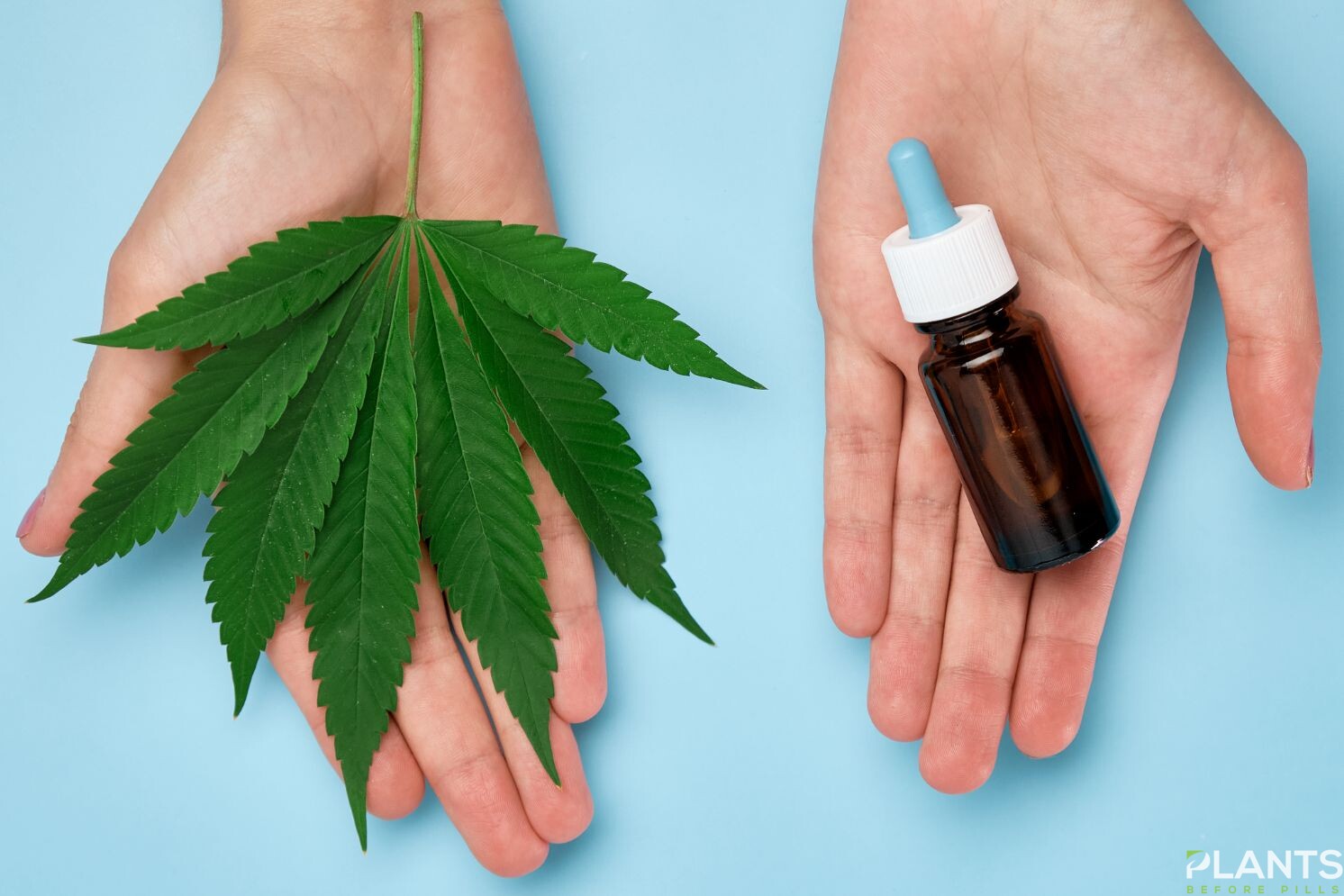
Imagine you’re sitting on your front porch, sipping your favorite tea as the sun dips below the horizon. Your friend Emily walks up, looking as relaxed as ever, holding a small bottle. “Have you heard about this stuff?” she asks, handing it to you. “It’s called CBG Oil. It’s like CBD, but with a twist.”
Curious, you take the bottle and examine it. “CBG Oil, huh? What’s so special about it?”
Emily grins. “Well, let me tell you…”
CBG Oil, short for cannabigerol oil, is quickly becoming the talk of the town among wellness enthusiasts. While most people are familiar with CBD (Cannabidiol), CBG is like the hidden gem of cannabinoids, offering a unique set of benefits that even seasoned CBD users might find intriguing.
What Makes CBG Oil Stand Out?
CBG is often referred to as the “mother of all cannabinoids.” This is because other cannabinoids, like CBD and THC, actually start out as CBG. As the cannabis plant matures, enzymes convert CBG into these other compounds. This makes CBG quite rare and precious since only a tiny amount remains by the time the plant is fully grown.
But here’s where it gets really interesting. Did you know that CBG binds directly to both CB1 and CB2 receptors in our bodies? This is different from CBD, which doesn’t bind directly. This means CBG can have a more direct impact on your body’s endocannabinoid system, potentially offering more pronounced effects.
Benefits That Shine Bright
One of the most talked-about benefits of CBG Oil is its potential to support a healthy inflammatory response. In fact, a study published in 2013 found that CBG had significant anti-inflammatory properties, which could make it a powerful ally for those dealing with chronic discomfort.
And that’s not all. CBG is also being studied for its potential neuroprotective properties. In a 2015 study, researchers found that CBG could help protect neurons in mice with Huntington’s disease, suggesting it might have similar benefits for other neurodegenerative conditions.
But perhaps one of the coolest things about CBG is its potential to support gut health. Early research indicates that CBG might help with inflammatory bowel disease (IBD). In a 2013 study, researchers found that CBG reduced inflammation and produced fewer symptoms in mice with IBD.
The Organic Edge
Now, if you’re already a fan of CBD and you’re curious about adding CBG to your wellness routine, you might wonder about the best way to do it. Here’s where organic CBD products come into play. Organic CBD and CBG oils are made from plants grown without synthetic pesticides or fertilizers, ensuring a cleaner, more natural product. This means you’re getting the full benefit of the plant, without any unwanted extras.
Imagine it like this: you’re choosing between two apples. One is grown in a pristine orchard with natural methods, while the other comes from a farm that uses chemicals to keep pests away. Which one would you rather bite into? The same logic applies to your CBG and CBD oils.
Real Talk from Real Users
Let’s circle back to Emily, who started this whole conversation. She started using CBG Oil a few months ago and has noticed a significant difference in her daily life. “I used to have this constant feeling of tension,” she says. “But since I started using CBG Oil, it’s like a weight has been lifted. I feel more balanced and in tune with my body.”
Stories like Emily’s are becoming more common as people discover the benefits of CBG. And while scientific research is still catching up, these personal anecdotes are hard to ignore.
Getting Started with CBG Oil
If you’re thinking about trying CBG Oil, start small. A few drops under the tongue might be all you need to begin experiencing its benefits. And as always, look for products that are third-party tested to ensure quality and potency.
CBG Oil is like the unsung hero of the cannabinoid world, quietly offering its unique benefits to those willing to give it a try. With potential benefits ranging from inflammation support to neuroprotection and gut health, it’s no wonder this little compound is starting to get the attention it deserves.
So, next time you’re looking to elevate your wellness routine, why not give CBG Oil a shot? After all, who wouldn’t want to discover a hidden gem that could make a real difference in their life?
Have you ever tried CBG Oil? What benefits have you noticed?
Medical Disclaimer:
The information provided in these blog posts is intended for general informational and educational purposes only. It is not a substitute for professional medical advice, diagnosis, or treatment. Always seek the advice of your physician or other qualified healthcare provider with any questions you may have regarding a medical condition. The use of any information provided in these blog posts is solely at your own risk. The authors and the website do not recommend or endorse any specific products, treatments, or procedures mentioned. Reliance on any information in these blog posts is solely at your own discretion.
CBD Oil
Unlocking the Healing Power: A Comprehensive Guide to CBD Oil in Canada
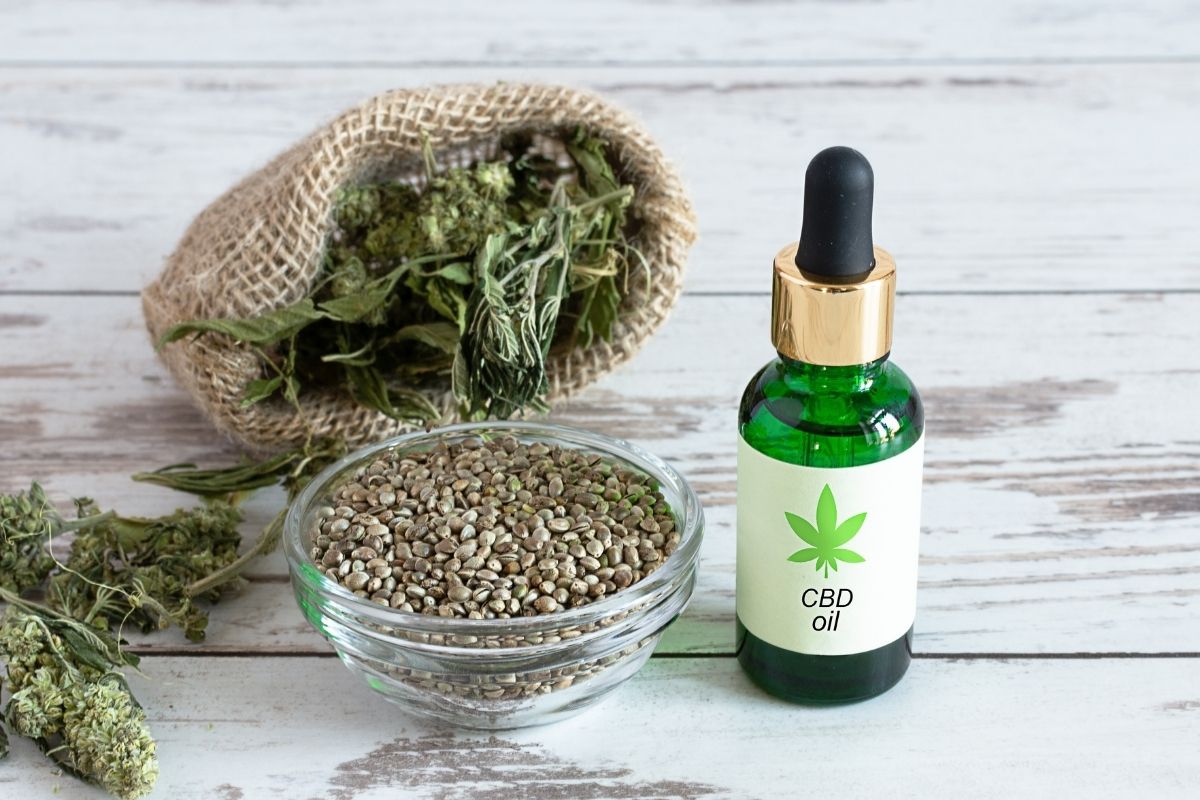
In the ever-evolving landscape of wellness, CBD oil has emerged as a powerful and natural alternative, captivating the interest of individuals seeking holistic approaches to enhance their overall health. Canada, known for its progressive stance on cannabis legalization, has witnessed a surge in the popularity of CBD oil. In this comprehensive guide, we delve into the depths of CBD oil, unraveling its intricacies, potential benefits, legal aspects, and the evolving understanding of its healing power in the Canadian context.
Understanding CBD Oil: A Natural Extract
CBD, or cannabidiol, is a prominent cannabinoid found in the cannabis plant. Unlike its counterpart THC (tetrahydrocannabinol), CBD doesn’t induce a psychoactive high. Instead, it interacts with the endocannabinoid system (ECS) in the human body, influencing various physiological processes such as mood, sleep, appetite, and immune response.
In Canada, the primary source of CBD is industrial hemp, containing minimal THC (below 0.3%). This ensures that CBD products derived from industrial hemp are non-intoxicating and fall within the legal framework established by the Canadian government.
Legal Landscape of CBD Oil in Canada
As of my last knowledge update in January 2022, CBD oil derived from industrial hemp is legal for both medical and recreational use in Canada. However, staying informed about any changes in legislation is crucial, as the regulatory landscape can evolve.
Navigating the legal aspects of CBD in Canada involves ensuring that the CBD oil comes from a reputable source and adheres to quality and safety standards. Choosing products from established brands that provide third-party lab testing results ensures transparency and verifies the purity and potency of the CBD oil.
Potential Benefits of CBD Oil: Unraveling its Therapeutic Potential
CBD oil Canada has garnered attention for its potential therapeutic benefits, with research and anecdotal evidence suggesting positive effects on various aspects of health. Some potential benefits include:
- Anxiety and Stress Relief: CBD interacts with receptors in the ECS associated with stress regulation, potentially promoting a sense of calm and relaxation. Individuals dealing with anxiety or stress may find CBD oil beneficial in managing these conditions.
- Pain Management: The anti-inflammatory properties of CBD make it a promising candidate for managing chronic pain conditions. Whether it’s arthritis, migraines, or general discomfort, individuals exploring natural alternatives may find relief in CBD oil.
- Sleep Improvement: Some users report improvements in sleep quality after using CBD oil. Its calming effects may contribute to a more restful night’s sleep, making it appealing to those dealing with sleep disorders or disturbances.
- Anti-Inflammatory Effects: CBD’s ability to reduce inflammation is not only beneficial for pain management but also for addressing inflammatory conditions such as arthritis or autoimmune disorders.
- Neuroprotective Properties: Research suggests that CBD may have neuroprotective properties, potentially offering benefits for individuals with neurodegenerative conditions.
It’s important to note that individual responses to CBD oil can vary, and consulting with a healthcare professional is advisable, especially when considering CBD for specific health conditions.
Types of CBD Oil: Isolate vs. Full-Spectrum
CBD oil is available in two main forms: isolate and full-spectrum.
- CBD Isolate: This pure form of CBD contains only cannabidiol, with all other cannabinoids and compounds removed. It’s an excellent option for those seeking the potential benefits of CBD without any traces of THC or other cannabinoids.
- Full-Spectrum CBD Oil: This type retains all the naturally occurring compounds found in the hemp plant, including a small amount of THC (within legal limits). The combination of cannabinoids, terpenes, and flavonoids is believed to create an “entourage effect,” enhancing the therapeutic benefits of each compound.
Choosing between isolate and full-spectrum CBD oil depends on individual preferences, sensitivities, and the desired effects. While isolate offers a THC-free option, full-spectrum products harness the synergistic effects of the entire hemp plant.
Methods of Consumption: Exploring Diverse Options
CBD oil comes in various forms, providing users with flexibility in choosing a consumption method that aligns with their preferences and lifestyle. Common methods of consumption include:
- Sublingual Administration: Placing a few drops of CBD oil under the tongue allows for faster absorption into the bloodstream. This method is popular for its efficiency and ease of use.
- Adding to Food or Beverages: Mixing CBD oil into food or beverages provides a discreet and palatable way to incorporate it into daily routines.
- Capsules: Pre-dosed CBD capsules offer a convenient option for those who prefer a precise and controlled dosage. This method is similar to taking traditional supplements.
- Topical Application: CBD oil can be infused into creams, balms, or lotions for topical application. This method is ideal for targeting specific areas of discomfort or addressing skin conditions.
Choosing the right method depends on individual preferences, desired effects, and the specific health goals of the user.
Conclusion: Embracing the Healing Potential of CBD Oil in Canada
In conclusion, CBD oil Canada stands as a beacon of natural healing in the realm of wellness, and its popularity continues to soar in Canada. This comprehensive guide aims to empower individuals with knowledge, offering insights into the basics, potential benefits, legal considerations, and diverse consumption methods of CBD oil.
As we unlock the healing power of CBD oil in Canada, it’s essential to approach its usage with a mindful and informed perspective. Consulting with healthcare professionals, staying abreast of legal developments, and choosing high-quality products contribute to a positive and transformative experience with CBD oil.
Whether seeking relief from stress, managing pain, improving sleep, or exploring holistic wellness, CBD oil offers a versatile and natural option. As the journey with CBD oil unfolds, individuals in Canada can embrace its potential to enhance overall health and well-being, contributing to a holistic approach to self-care in the quest for a balanced and fulfilling life.
Medical Disclaimer:
The information provided in these blog posts is intended for general informational and educational purposes only. It is not a substitute for professional medical advice, diagnosis, or treatment. Always seek the advice of your physician or other qualified healthcare provider with any questions you may have regarding a medical condition. The use of any information provided in these blog posts is solely at your own risk. The authors and the website do not recommend or endorse any specific products, treatments, or procedures mentioned. Reliance on any information in these blog posts is solely at your own discretion.
CBD Oil
Demystifying CBD: What You Need to Know About Cannabidiol

Cannabidiol, commonly known as CBD, has taken the world by storm in recent years. It’s become a buzzword in the wellness industry, and you’ve probably seen it featured in various products, from oils and tinctures to skincare and even beverages. But what exactly is CBD, and what do you need to know about it? In this blog post, we’ll demystify CBD and explore its uses, benefits, and even touch upon its presence in France.
What is CBD? CBD is one of the many compounds found in the cannabis plant. Unlike its cousin, tetrahydrocannabinol (THC), CBD does not produce a psychoactive high. This means that using CBD won’t leave you feeling intoxicated or impaired. Instead, CBD is known for its potential therapeutic properties.
The Legality of CBD The legality of CBD varies from country to country, and France is no exception. In France, CBD products are legal as long as they contain less than 0.2% THC, the psychoactive compound responsible for the “high” associated with cannabis. This legal threshold ensures that CBD products are non-intoxicating and safe for consumers.
France, known for its stringent cannabis regulations, has embraced CBD within these legal limits. French consumers can find a wide range of CBD products, including oils, capsules, and even CBD-infused cosmetics, in stores across the country.
CBD’s Potential Benefits CBD has garnered attention for its potential health benefits. Some of the most commonly reported uses of CBD include:
- Stress and Anxiety Relief: Many individuals turn to CBD to alleviate stress and anxiety. Research suggests that CBD may interact with the body’s endocannabinoid system to help regulate mood and reduce feelings of anxiety.
- Pain Management: CBD is also used by people seeking relief from chronic pain, such as arthritis or neuropathic pain. It’s believed that CBD may help reduce inflammation and alleviate pain without the side effects associated with traditional pain medications.
- Sleep Improvement: Some users report improved sleep quality after incorporating CBD into their routines. CBD’s calming effects may help individuals fall asleep faster and enjoy a more restful night.
Choosing High-Quality CBD Products When considering using CBD, it’s crucial to select high-quality products from reputable sources. Look for products that have been third-party tested for purity and potency. In France, reputable CBD companies adhere to strict quality control standards, ensuring the safety and efficacy of their products.
The Future of CBD in France As the CBD market continues to grow globally, France is poised to play a significant role. French hemp cultivation is expanding, and local CBD producers are gaining recognition for their high-quality products. This not only benefits consumers but also contributes to the country’s economy and agricultural sector.
In conclusion, CBD is a fascinating compound with potential therapeutic benefits, and it’s gaining popularity not only in France but worldwide. Understanding what CBD is, its legal status, and its potential benefits can help you make informed decisions when exploring CBD products. Whether you’re looking for stress relief, pain management, or better sleep, CBD may offer a natural alternative worth considering. Just remember to consult with a healthcare professional before incorporating CBD into your wellness routine, especially if you have underlying medical conditions or are taking medications.
Medical Disclaimer:
The information provided in these blog posts is intended for general informational and educational purposes only. It is not a substitute for professional medical advice, diagnosis, or treatment. Always seek the advice of your physician or other qualified healthcare provider with any questions you may have regarding a medical condition. The use of any information provided in these blog posts is solely at your own risk. The authors and the website do not recommend or endorse any specific products, treatments, or procedures mentioned. Reliance on any information in these blog posts is solely at your own discretion.
CBD Oil
Tincture vs Oil: Which is Better for You?
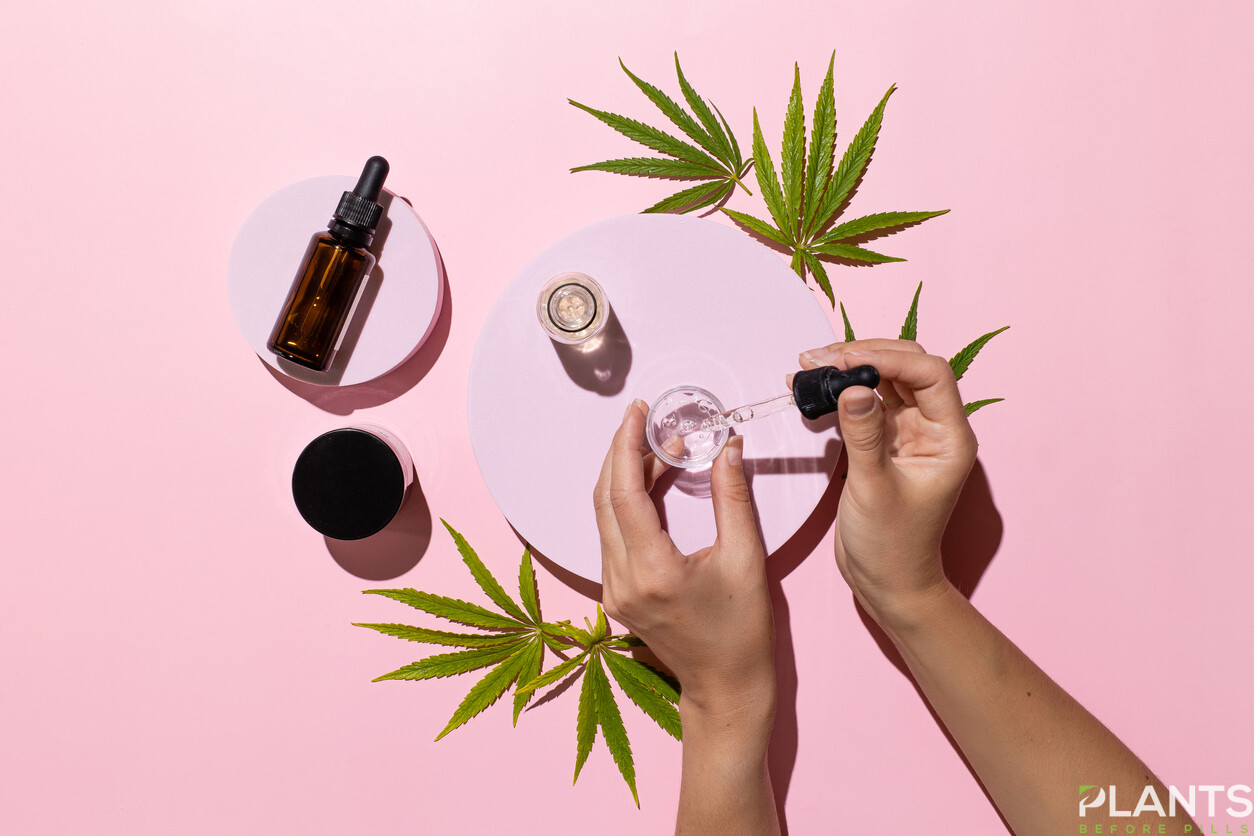
Walking into a dispensary can present you with various ways to enjoy cannabis.
Some tokers prefer the classic method of inhaling – using either joints, pipes, or bongs. Others prefer ingesting instead. When people think of consuming cannabis, their minds gravitate to edibles like brownies, cookies, and even beverages.
However, cannabis comes in simpler forms – oils and tinctures.
If you’re unfamiliar with the two, it can be easy to mistake them for one another.
Learn the differences between these two forms of cannabis, so you can discern which one is the best for you!
What is Cannabis Oil?
You may know a friend or yourself that has suggested cannabis oil to first-time, hesitant users. A classic example of such users is older family members like your mom or dad that grew up believing the rhetoric of reefer madness. From the form cannabis oil comes in, it’s rather simple for the most part.
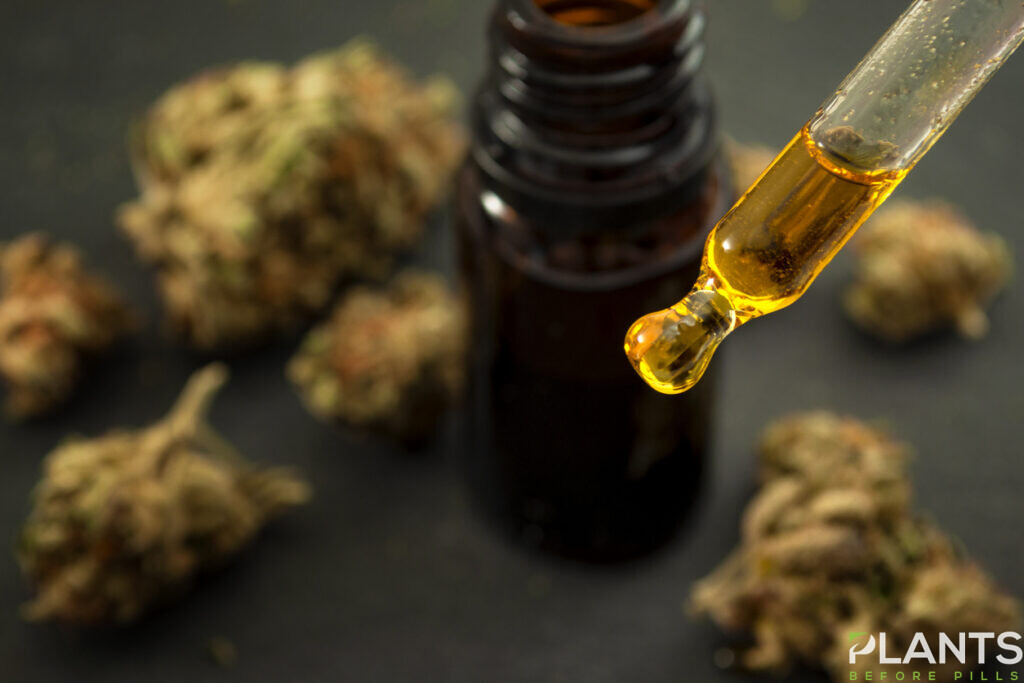
Yet, what exactly is cannabis oil?
Cannabis oil is known to be extracted directly from cannabis plants. From there, it’s blended with a carrier oil (i.e. coconut oil) and potentially includes compounds like terpenes and flavonoids. You see this mainly with oil extracted from hemp plants since they contain more CBD. However, it’s possible to have more THC if extracted from a ‘skunk plant’ – a notable hybrid strain.
For the most part, people who opt for cannabis oil go for the ones with high CBD. An oil high in CBD is the one best for medicinal use, while the ones high in THC are what gives the ‘high’ feeling that recreational cannabis users want.
What Are Cannabis Tinctures?
There is a lot of confusion surrounding what constitutes a cannabis tincture. Many have mistakenly bought cannabis oils thinking they’re tinctures since both can be ingested and come in similar forms. However, knowing how cannabis tinctures are made can help you discern the difference.
You would be surprised to know that cannabis tinctures use alcohol in their extraction process.
The method involves the cannabis plant being soaked in high-proof alcohol. From there, it takes a few days to steep before being ready to be strained out. Once done, all cannabinoids, terpenes, and other compounds have melded with the base liquid. In turn, this method helps with their preservation by protecting against oxidation.
Since this process doesn’t need much refinement and filtration, tinctures often taste bitter. Tinctures mask the bitterness by mixing with certain flavouring, sweeteners, or even vegetable glycerin. Depending on what you want from a tincture, they can incorporate herbal extracts or supplements (i.e. melatonin).
Comparing Cannabis Oil & Tinctures
One obvious difference between cannabis oil and tinctures lies within their extraction process. However, some might not understand how that can affect them. Depending on your consumption, one might have more benefits than the other.
Application
Cannabis oil and tinctures are both taken under your tongue. They both can be ingested, but you can use cannabis oil for topical application and get affected by it. Meanwhile, tinctures won’t affect them since they’re not meant for topical use.
Supply
There is a reason why cannabis oil and tinctures are mistaken for one another. Cannabis oil is much more readily available, while tinctures are uncommon. Some dispensaries might sell tinctures, but they’re actually cannabis oil. Ensure a tincture’s legitimacy by seeing if it has alcohol.
Taste
When it comes to taste, cannabis oil is better than tinctures. Despite efforts to mask bitterness, tinctures will still taste more bitter than cannabis oil. Plus, there is more variety of flavours with oil.
Ingredients
Compared to oil, tinctures have more ingredients included. Speaking of ingredients, it can dictate which one is best for you. If you’re sensitive to alcohol, oil would be the best choice. However, if you’re allergic to an oil carrier (i.e. coconut oil), then a tincture is best for you.
Lifespan
Everything has an expiration date. However, a tincture will have a longer shelf life than cannabis oil. If you’re going with oil, it’s best to use it frequently. You don’t want to waste money on oil that expires before you’re able to use all of it.
Potency
Potency is an important factor to consider for any cannabis user. You can expect both to be rather potent. However, cannabis oil would be more concentrated in comparison.
Absorption
There is debate on which one absorbs faster. However, the consensus indicates that tinctures provide faster and more efficient absorption.
Cannabis oil and tinctures share a lot of similarities. However, they do have key differences, namely how they’re made. In turn, it can affect how you enjoy cannabis. Since everyone is different, an oil or tincture can be the best or subpar. In which case, the one that can fulfil your expectations is ultimately the best for you.
Medical Disclaimer:
The information provided in these blog posts is intended for general informational and educational purposes only. It is not a substitute for professional medical advice, diagnosis, or treatment. Always seek the advice of your physician or other qualified healthcare provider with any questions you may have regarding a medical condition. The use of any information provided in these blog posts is solely at your own risk. The authors and the website do not recommend or endorse any specific products, treatments, or procedures mentioned. Reliance on any information in these blog posts is solely at your own discretion.
CBD Oil
5 ways CBD Can Improve the Quality of Your Life

How would you respond if a friend told you they want to start taking CBD? Would the first words out of your mouth be: “Oh, I always think of that when I think of hippies”? My guess is no. That’s because CBD has gone mainstream, and people are starting to understand how powerful it can be. CBD has been shown to help balance the body and give users a sense of calm. It can also enhance sleep and focus, decrease anxiety in social situations, and improve overall wellness.
1. CBD is a natural way to improve sleep and focus. CBD can balance the body and help you feel like yourself again. Studies show that CBD helps people fall asleep faster and stay asleep longer. It also helps reduce anxiety in social situations—the perfect remedy for those who suffer from extreme shyness! CBD may be the answer if you have trouble sleeping or know someone who does.
2. CBD can help you achieve your fitness goals too. If you’re looking for an edge when training for a triathlon or running a marathon, CBD can help! While it’s not been proven yet in clinical trials (it’s still considered an illegal substance in some parts of the world), many athletes claim that meilleur CBD has made them stronger than before. CBD has been shown to increase oxygen flow through the body, which means more endurance during workouts and less muscle inflammation afterward.
3. CBD can help decrease anxiety in social situations. CBD can also help you improve your quality of life in other ways. For example, CBD has been shown to help people who suffer from anxiety and depression. The National Institutes of Health estimates that over 6% of adults in the United States have an anxiety disorder—16 million people! When someone suffers from anxiety, they may find that it interferes with their ability to fall asleep at night or even participate in social situations. CBD works by binding itself to receptors in your brain called CB1 receptors (which are found throughout your body). These receptors control things like pain sensation, mood, and memory function. So it makes sense that when these receptors are activated by something like CBD oil (or any other full-spectrum hemp product), people experience relief from symptoms associated with those conditions listed above.
4. CBD can help with pain management. CBD has been shown to help relieve pain such as headaches, arthritis, and joint and muscle pain. It does that by working with your pain receptors and reducing inflammation in the body. This decrease in pain can help you live a better quality of life and enjoy it pain-free.
5. CBD can help you relax after a stressful day. CBD can help you relax after a stressful day at the office. It’s no secret that relaxation is essential for mental health, and CBD enables you to feel better by causing your body to produce more serotonin. This neurotransmitter affects our moods, emotions, and sleep patterns. It also causes GABA levels (a chemical that inhibits neurons from firing) in the brain to rise, which can help reduce anxiety and stress. This means that taking CBD before bedtime may help make it easier to fall asleep faster! CBD has been shown to reduce stress levels among users who take it regularly, whether it’s helping you get through your day at work or winding down after a long day at home with the kids.
Conclusion
CBD is a natural way to balance your body, improve sleep and focus, decrease anxiety in social situations, and help you relax after a stressful day. So whether you’re just starting to try CBD products or have been using them for some time now, remember that this is something worth doing for yourself. And if you’re not sure where to start, reach out! We’re always here for our customers and are happy to answer any questions about which of our products might be right for you.
Medical Disclaimer:
The information provided in these blog posts is intended for general informational and educational purposes only. It is not a substitute for professional medical advice, diagnosis, or treatment. Always seek the advice of your physician or other qualified healthcare provider with any questions you may have regarding a medical condition. The use of any information provided in these blog posts is solely at your own risk. The authors and the website do not recommend or endorse any specific products, treatments, or procedures mentioned. Reliance on any information in these blog posts is solely at your own discretion.
Cannabis Lifestyle
Why Our Grandparents Should Add CBD Oil to Their Lifestyle

As our grandparents get older, we notice some changes in their bodies. From having more frequent joint pain, degrading muscles, and watching them lose their appetite, these can be a difficult pill to swallow for many of us who love and care for our grandparents.
There’s no one way to completely avoid aging and all the effects that come with it. There are, however, some things that can help us manage aging and the symptoms that come with it. One of these is no other than the ever-reliable CBD oil.
Safety of CBD for the Elderly
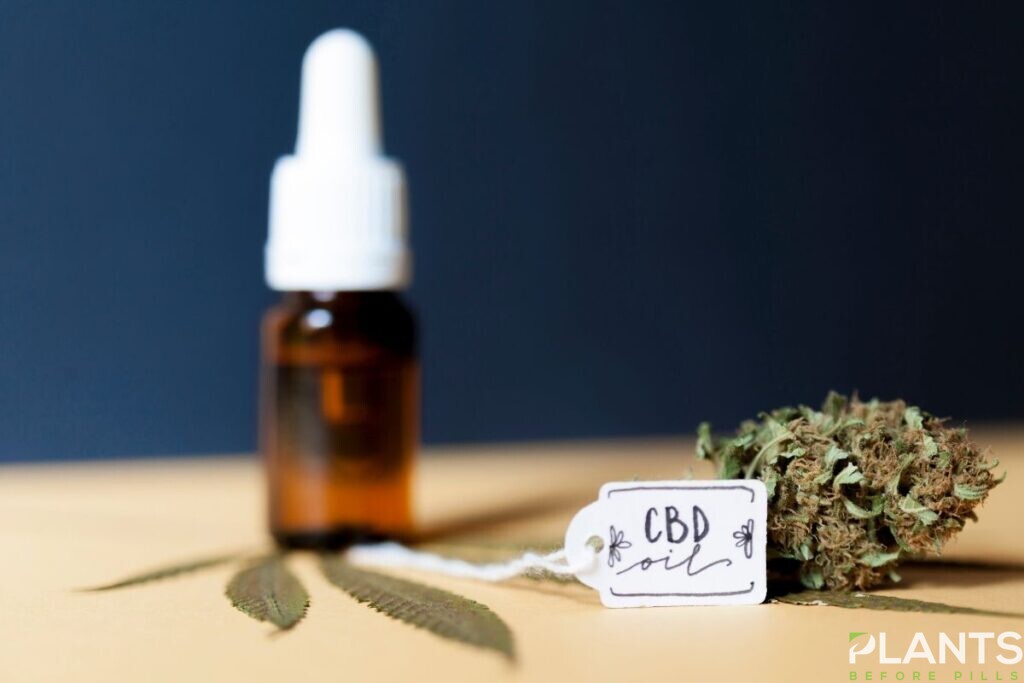
Cannabidiol is a non-psychoactive compound derived from the cannabis plant. Without the presence of tetrahydrocannabinol or THC, this could not get you or your elderly high. This also does not cause an overdose in users and is generally safe to consume even in higher qualities. This entails that CBD oil is safe enough for healthy seniors to use and to add to their lifestyle.
Those who are using a number of medications, however, should first consult their doctor prior to using cannabidiol. This is to ensure that they are fit and healthy enough to use this and to prevent the cannabinoid from interacting with any prescription drug a person may be taking at the moment.
Users should also take great care in only using high-quality CBD products that come from reputable brands and sources for safer consumption. Likewise, starting from a low dosage and working their way up is a good way to start learning what’s compatible with their metabolism.
Why Seniors Should Consider Taking CBD Oil
- Great for Treating Chronic Pain and Inflammation
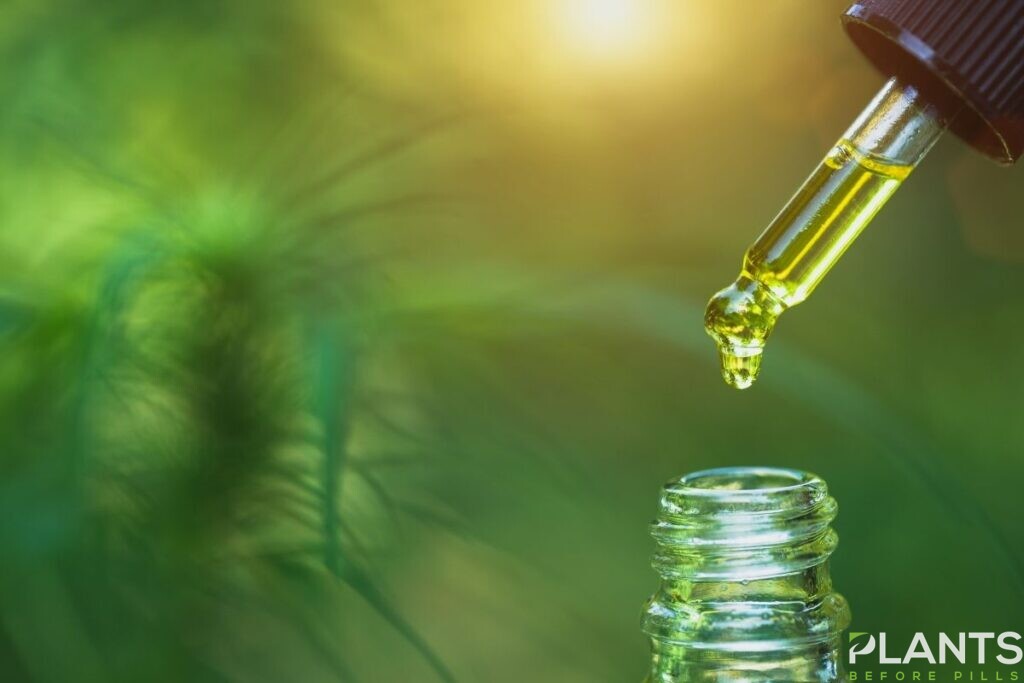
One of the main issues that older adults face in their lives is undoubtedly pain. The older they get, our seniors tend to encounter joint pain and inflammation in their lives, with others dealing with chronic pain.
Cannabidiol can significantly reduce pain and inflammation in users thanks to its anti-inflammatory property. By including CBD products, seniors can improve their quality of life. Many of those taking prescription drugs and opioid painkillers may even find cannabidiol beneficial in moving away from drugs that only promote addiction and cause unwanted side effects.
- Stimulate Appetite
Appetite loss is yet another problem we normally encounter in older people. Whether these are through anxiety, pain, depression, or other common problems, this could be detrimental to their health.
Taking CBD oil can help stimulate their appetite. It can boost their appetite, particularly when added to food or drink or by taking cannabidiol orally as a type of supplement. With CBD’s ability to address nausea, anxiety, pain, and other factors, adding this to a senior’s diet may urge them to eat more over time.
- Prevent or Slowdown Risk of Dementia
Our grandparents’ bodies grow older and alongside this, their brains tend to grow old and deteriorate as well, making them susceptible to dementia or Alzheimer’s disease.
While the studies surrounding the use of CBD products on dementia are still limited, there is sufficient research that point’s to cannabidiol’s effectiveness in easing symptoms associated with the condition. This can help treat their anxiety and depression, sleeping disorders, as well as agitation and motor function.
The Bottom Line
CBD for seniors certainly holds a lot of potential. By adding CBD oil to your grandparents’ diet and lifestyle, you can go a long way in helping them deal with different health conditions. Before using these, be sure to consult with their physician first.
Medical Disclaimer:
The information provided in these blog posts is intended for general informational and educational purposes only. It is not a substitute for professional medical advice, diagnosis, or treatment. Always seek the advice of your physician or other qualified healthcare provider with any questions you may have regarding a medical condition. The use of any information provided in these blog posts is solely at your own risk. The authors and the website do not recommend or endorse any specific products, treatments, or procedures mentioned. Reliance on any information in these blog posts is solely at your own discretion.
Cannabis Blogs
CBD Oil Use Cases for Parents

Hemp-derived cannabidiol (CBD) is one of the most easily available cannabis products out there, thanks to the 2018 Farm Bill. For many, CBD oil is the most preferable option because of its sheer accessibility and convenience of consumption.
Patients and typical consumers alike have taken advantage of what this cannabinoid has to offer. A market segment that can benefit from CBD is the parent population. These people know how stressful it is to maintain a household with a child in tow.
Interested individuals can harness the advantages of this cannabinoid as a daily life aid. Wondering how. Check out the benefits below.
Uses of CBD Oil
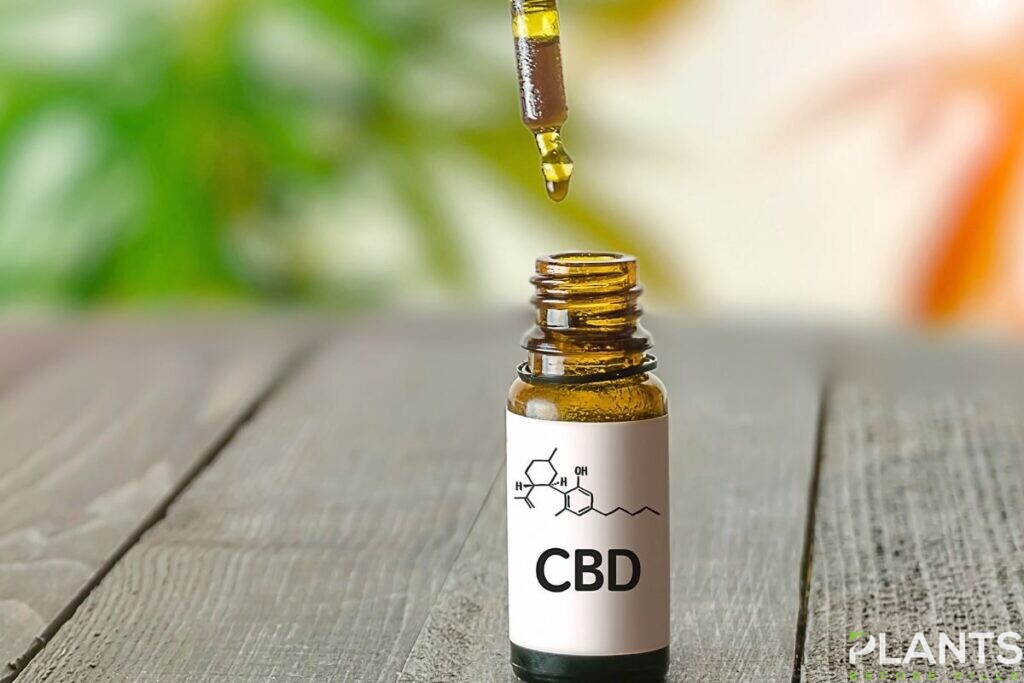
Uplift Mood and Energy
CBD is a non-psychoactive substance that shows the potential in improving users’ moods and energy. It has been discovered to have promising effects on anxiety, mood disorders, and depression, just to name a few.
However, it is not only being used clinically, but also as a lifestyle aid that can uplift consumers’ moods and improve their energy, when taken at the right time. Using this in the morning when users need a boost can be a good choice for parents, especially daily house chores and work can be pretty tiring.
Relieve Muscle Ache and Other Pains
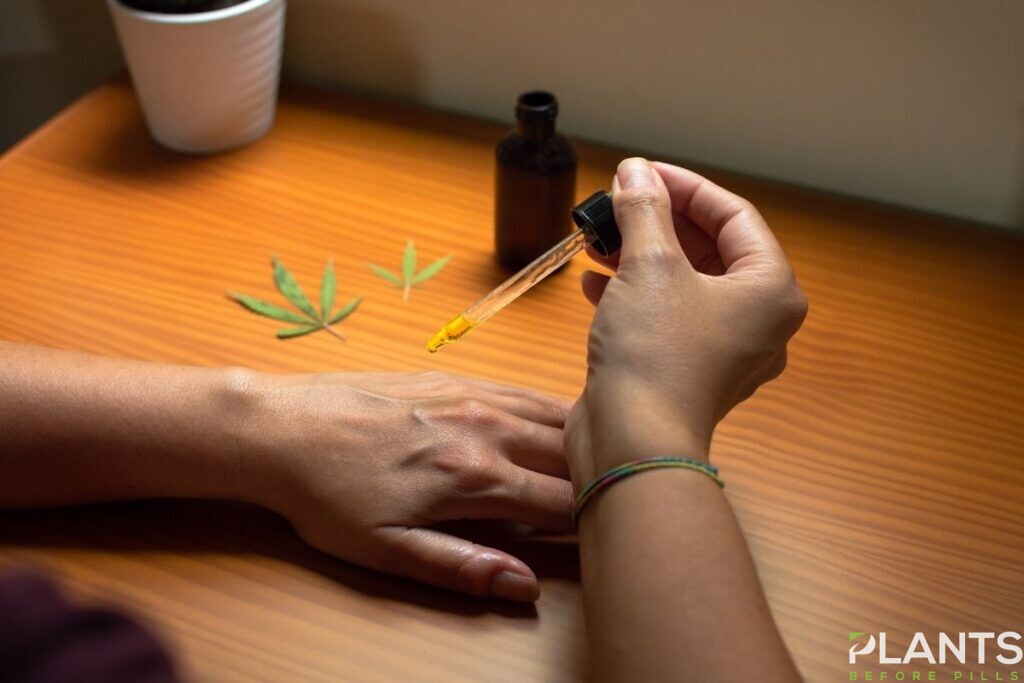
Working day in and out can result in all kinds of pains, especially for work that requires physical labor and activities. Even office jobs can take a toll on the body when it requires people to sit at a desk all day.
The thing is, parents who work half the day for their employer, come home to more work. Whether they are in charge of cooking and cleaning, or feeding and putting the kids to sleep, these already-tired individuals have more things to do that can result in headaches, muscle aches, back pains, and other similar sensations.
The good thing is that CBD is known to relieve pains because of the way it interacts with the body’s endocannabinoid system. It can also help with inflammations.
Relaxation at the End of the Day
With all the things parents go through every day, they definitely deserve to have some downtime once their kids are in bed. This can come in the form of just a few moments of peace before bedtime, or a full-time self-pampering session – when they find time at night, at least.
CBD can be a great companion because it not only helps boost energy but also helps relieve stress. A simple reading time can be more enjoyable when parents consume this product. In fact, other activities such as a little TV time can be more fun, as well.
It can also serve as a sleep aid for tired minds and bodies, so they can sleep more soundly at night and wake up more energized in the morning.
The Bottom Line
Patients and cannabis consumers are not the only ones who can benefit from CBD oil. Parents who are in dire need of a pick-me-up can check out what this substance has to offer and see how it can improve their daily lives.
Medical Disclaimer:
The information provided in these blog posts is intended for general informational and educational purposes only. It is not a substitute for professional medical advice, diagnosis, or treatment. Always seek the advice of your physician or other qualified healthcare provider with any questions you may have regarding a medical condition. The use of any information provided in these blog posts is solely at your own risk. The authors and the website do not recommend or endorse any specific products, treatments, or procedures mentioned. Reliance on any information in these blog posts is solely at your own discretion.
CBD Oil
Understanding the Differences Between CBD Oils and Tinctures
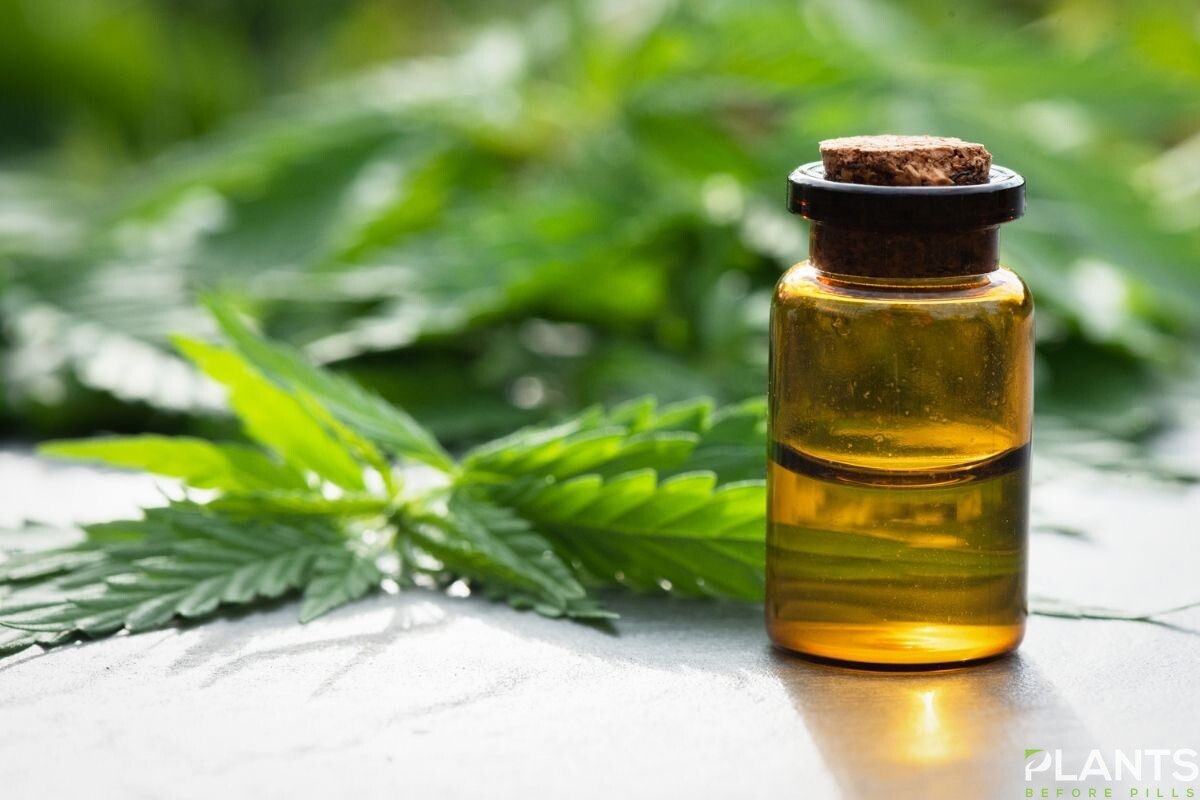
Oil and Tincture: Essential Differences
- Base
- Application Methods
- Methods of Making

Similarities Shared by Full-Spectrum CBD Oil and Tinctures
While these two products have vital differences, they also have similarities. You will find their packaging extremely similar: both come in small bottles with eye droppers. The dosage is also measured in drops, although the potency can vary based on how much CBD content the whole package has. Both items are flexible, as they can imbue any food and drink with the goodness CBD has to offer.The Takeaway
Full-Spectrum CBD oils and tinctures are similar products with essential differences that make them perfect for their respective use cases. Now that you know what sets these two apart, you can effectively decide which one to get. You can even get both if you are so inclined!Medical Disclaimer:
The information provided in these blog posts is intended for general informational and educational purposes only. It is not a substitute for professional medical advice, diagnosis, or treatment. Always seek the advice of your physician or other qualified healthcare provider with any questions you may have regarding a medical condition. The use of any information provided in these blog posts is solely at your own risk. The authors and the website do not recommend or endorse any specific products, treatments, or procedures mentioned. Reliance on any information in these blog posts is solely at your own discretion.
CBD Oil
CBD Oil for Dogs – How It Works and Why Use It
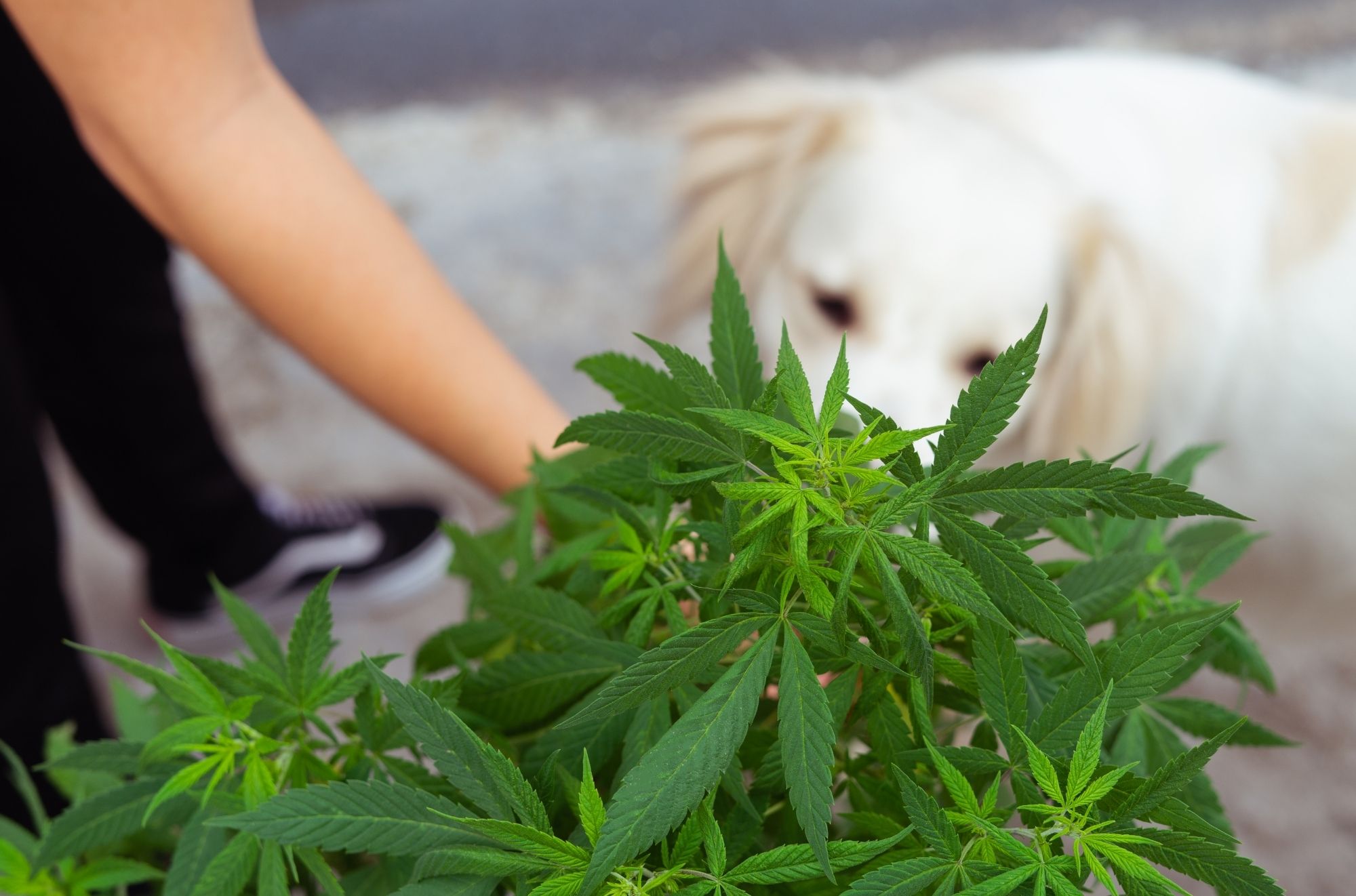
CBD or cannabidiol is the latest cutting-edge supplement being used therapeutically for pets – including dogs, cats and horses. Why is this? The reasons are many, but it’s been found to be one of the most powerful health-promoting supplements today. CBD oil acts on the endocannabinoid system present in all mammals including your dog. This system aids in regulating a range of processes in pets like dogs – from immunity to skin and hair health. It may be the next key in improving and protecting the wellbeing of our pets. Best of all, it’s not addictive, highly nutritious and aids in improving the coat of your dog’s fur. It’s still being researched currently in clinical trials however much of the anecdotes from dog owners suggest the potent anti-inflammatory and homeostasis promoting benefits of CBD. Let’s look at why your dog might need it and where to buy it in Australia.
If you’re reading here, you’re likely asking yourself what the best full spectrum CBD oil is for dogs and how to provide it to them. The good news is – we’ve got you covered. We’ll look at what the different forms of cannabis extract oils are, how it gets produced, and what the different ways to take this health supplement for your dog look like – from capsules, edibles, oils and more. We will also cover its top benefits for your pet and how these effects occur to keep you in the know. Its beneficial applications are as broad as physical issues like arthritis in dogs to mental problems like depression.
Skin Irritation and Skin Problems
The most common skin condition of pets is pruritus (itchiness). The condition can be so bad that pet owners turn to euthanasia. Now cannabidiol may offer an option. Sensory nerve fibres from the skin contain cannabinoid receptors. Researchers found that cannabinoids applied directly to the skin can significantly reduce itching in humans. Other studies have also found that cannabinoids can protect against contact dermatitis.
Besides these conditions, there is also limited evidence that cannabinoids may be helpful in the prevention or treatment of liver disease, kidney disease, and lower urinary tract infections. Much more research needs to be done to both uncover their full potential as well as sift out false leads. Cannabinoids are not miracle workers. They are not going to cure cancer— but they just may slow it or make it more bearable. Or maybe they will cure it in its early stages—we just don’t know yet. There’s no evidence of cannabinoids being helpful in other major health issues of canines, heart disease, or that they can combat common hereditary conditions such as progressive retinal atrophy, hip dysplasia or patellar luxation. But they may help alleviate anxiety from breathing or visual problems, or inflammation and pain from joint problems. Cannabinoids like CBG and CBN are not miracle workers—they won’t fix everything—but for dogs with problems they do work on, they just may be highly effective.
It’s apparent that full spectrum CBD oil is becoming a vital tool in the fight against health issues—but even more important is their value in maintaining health. Cannabinoids prevent and combat common complaints of aging, including diminution of mental capacities, anxiety, lack of appetite, and inflammation and pain associated with arthritis. But beyond that, cannabinoids may simply make pets feel better, improving their comfort, mood, activity and appetite, so they feel and act like a younger version of themselves—and maybe even better.
When your pet is more active, has better mental clarity, better muscle tone, better nutrition and maintains a proper weight, those factors contribute to better health, better quality of life, and longer life. Even in younger pets, cannabinoids play an important role in maintaining homeostasis. Foremost among cannabinoids’ benefits for healthy pets is their reduction of inflammation, as inflammation can bring on a host of problems including pain and arthritis. Cannabinoids are better used as a part of a holistic approach to pet health, not simply a therapy to turn to when things go wrong. Unlike humans, pets can’t tell you that they feel lethargic, depressed, or confused. Once owners notice such things, the condition is usually advanced.
Nor can they go out and hunt for plants or foods that may contain nutrients missing in their diet. It’s up to us to supply a balanced diet with any supplements their body may be lacking. Especially considering the possibility of endocannabinoid deficiency syndrome, the prudent practice is to give our pets’ bodies access to some of the most important natural compounds for their health and well-being: cannabinoids.
How it works
Different cannabinoids found in full spectrum hemp oil can help benefit your dog’s health and wellbeing through their interaction with the endocannabinoid system. This system supports and strengthens the immune system, metabolic and cell health plus homeostasis (also found in dogs). In other words, it assists in maintaining wellbeing and balance within the body and mind. What’s becoming more and more clear over time is the endocannabinoid system can assist dogs in numerous ways from improving sleep quality to enhancing immunity and mood.
How does it work? The system consists of many receptors across the body and brain of both humans and dogs. These are known as the CB1 and CB2 cannabinoid receptors. CB1 types are found primarily in the body, including the gut, spleen, skin and other important organs. CB2 is primarily found in the brain, spine and brain stem. Both play an important role in the system’s function. When cannabinoids like CBD or THC are consumed it triggers these receptors. This causes them to release endocannabinoids, powerful anti-inflammatory and anxiolytic (anxiety reducing) compounds that assist with a range of health issues. Most important of these is anandamide which can help dogs with everything from pain reduction to improvements in arthritis symptoms.
If you’re reading here, you’re likely asking yourself what the best way to get these benefits for your dog is. Full spectrum CBD oil containing cannabidiol is known to be the top way to trigger the endocannabinoid system. The name full spectrum denotes oil products taken from the whole hemp plant, meaning it contains a variety of important nutrients including terpenes and flavonoids that contribute to the entourage effect. In both humans and dogs this effect accentuates the action of cannabinoids on the endocannabinoid system, creating more endocannabinoid release and improving health outcomes.
Conclusions on Health Benefits for Dogs
Fifty-plus years of medical research on cannabinoids have produced thousands of studies, revealing dozens of health applications in animals. Hemp oil is the most well-known and often studied non-psychoactive cannabinoid and has been found to be non-toxic, with very few, if any, side effects. Indeed, its effects are the opposite – promoting health, longevity and reducing inflammation for both old and young dogs. We have found in our research that it aids particularly in chronic issues relating to arthritis and other forms of joint or nerve pain. We use ours with our old Labrador daily to help it get the best quality of life.
There are multiple cannabinoids in this healthy and beneficial extract that can potentially provide therapeutic benefits for canines, including cannabidiol, CBD, CBG, CBC and BCP. Endocannabinoid deficiency syndrome may be responsible for health issues in aging pets. Cannabinoids are not just for when your dog is sick or when pharmaceuticals fail. They are a beneficial component of daily nutrition for all pets.
Medical Disclaimer:
The information provided in these blog posts is intended for general informational and educational purposes only. It is not a substitute for professional medical advice, diagnosis, or treatment. Always seek the advice of your physician or other qualified healthcare provider with any questions you may have regarding a medical condition. The use of any information provided in these blog posts is solely at your own risk. The authors and the website do not recommend or endorse any specific products, treatments, or procedures mentioned. Reliance on any information in these blog posts is solely at your own discretion.
CBD Oil
Creative Ways to Incorporate CBD in Your Life

CBD Edibles

CBD Vape

Topicals and Skincare
Last but certainly not least is applying CBD through ointments and skincare. This is ideal for those who are not exactly fond of consuming or eating cannabidiol. Instead, topicals give users more control over where and how they want to use cannabidiol: by applying it directly onto the skin or the affected area. Lotions, balms, creams, and even cannabidiol oils are great for those who want to treat localized pain or certain skin conditions. Meanwhile, people who want less inflamed and more moisturized skin may benefit from using skincare products that have cannabidiol in them.The Bottom Line
With the countless CBD oil products on the market today, you’ll have no shortage of ways to consume cannabidiol in ways that are convenient and appealing to you. If you happen to prefer one form of CBD intake or use over the other, you’re more than welcome to stick with what works for you.Medical Disclaimer:
The information provided in these blog posts is intended for general informational and educational purposes only. It is not a substitute for professional medical advice, diagnosis, or treatment. Always seek the advice of your physician or other qualified healthcare provider with any questions you may have regarding a medical condition. The use of any information provided in these blog posts is solely at your own risk. The authors and the website do not recommend or endorse any specific products, treatments, or procedures mentioned. Reliance on any information in these blog posts is solely at your own discretion.
-
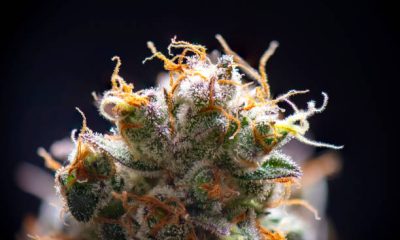
 Cannabis 1016 months ago
Cannabis 1016 months agoExploring the Powerful Profile of Sour Diesel Terpenes: Aroma, Effects, and Uses
-
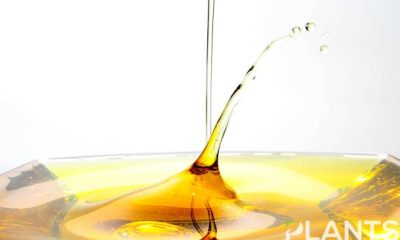
 Videos6 months ago
Videos6 months agoLive Resin Explained: A Potent Cannabis Extract Guide
-

 Cannabis 1016 months ago
Cannabis 1016 months agoWhere to Find the Best Weed Stores in Calgary Without the Headache
-
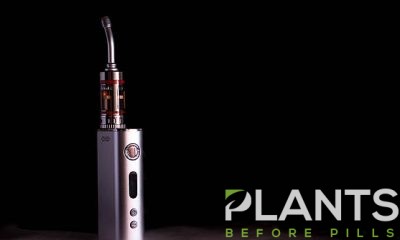
 Cannabis 1016 months ago
Cannabis 1016 months agoThe Future of vape hardware manufacturer: Innovation Quality and Compliance
-
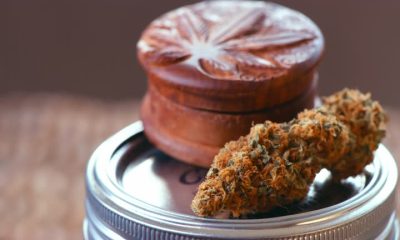
 General5 months ago
General5 months agoIntroduction to Buying Marijuana Seeds
-
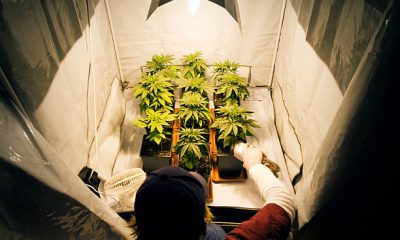
 Cannabis 1015 months ago
Cannabis 1015 months agoThe Complete Guide to Growing Marijuana Tohumsuz
-

 Cannabis Business6 months ago
Cannabis Business6 months agoBenefits of Partnering with a Cannabis POS Provider
-
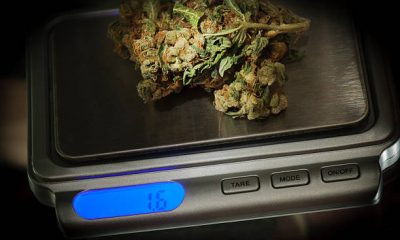
 Cannabis Blogs5 months ago
Cannabis Blogs5 months agoThe Ultimate Guide to Cultivating Cannabis in the Netherlands

